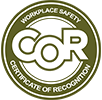How to Have a Safer Worksite with a Dust Control System

In almost every industrial work environment, especially woodworking, construction, and manufacturing plants, workers will be exposed to dust. Dust is released through tasks that involve abrasive crushing, cutting, blasting, sifting, mixing, or screening dry materials. Dust is unavoidable, but it makes everyday work more difficult and strenuous. As an employer, you need to recognize the dangers associated with dust in the job site and install a dust control system as an effort to reduce or eliminate dust to have a better workplace environment.
The Risks Involved with Exposure to Dust
Many people do not worry about dust and instead, they choose to just blow it off. Employers, managers, and workers ought to know that a little bit of dust can create big problems. Dust is a combustible and respiratory hazard. It tends to accumulate on surfaces or be suspended in the air. Something as simple as a spark from a hot machine motor or welding, for instance, is enough to trigger an explosion. Such fires could result in severe injuries, loss of life, and loss of property.
Airborne dust is associated with classical widespread work-related respiratory diseases and systemic intoxications, especially at higher levels of exposure. Exposure to dust can cause lung cancer, allergic alveolitis, asthma, and carcinoma of the lungs.
Workers also suffer from decreased visibility and headaches when high amounts of dust are suspended in the air. It can be difficult to even concentrate when you can smell and taste the dust in the air the whole day. Accidents and injuries resulting from slips, trips, and falls are not uncommon.
Creating a Safer Worksite with a Dust Control System
Dust control is a big issue and the single most important factor in preventing hazards in any dust-generating worksite. An effective dust control system helps eliminate the source of catastrophic fire or explosions in industries that generate dust. A dust control system allows for higher levels of safety by preventing slips, trips, and falls.
Improved air quality provides a myriad of benefits, including improved overall comfort, a cleaner workplace, increased visibility, decrease in employee sick days, recapture of any valuable material in the air, and provides peace of mind that your business is playing its role in protecting the environment.
A dust control system helps maintain the appropriate particulate concentration inside and outside the facility. The appropriate system for your worksite will depend on the type of industrial processes within the worksite, the size of the worksite, and more. We understand that investing in a dust control system means protecting your workers, your bottom-line, and the environment. Contact us today to learn more about our personalized dust control systems.







